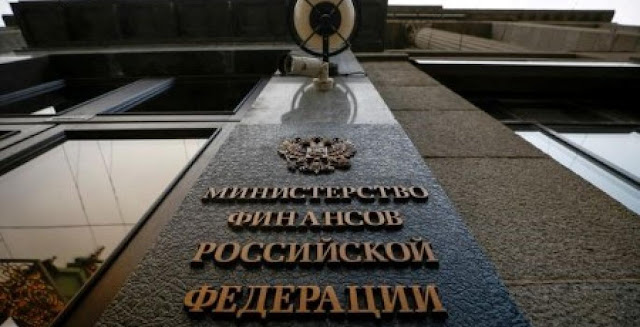Russia slips into default zone as payment deadline expires | Brave Business
Russia slips into default zone as payment deadline expires
Reuters, LONDON, June 27 - As some bondholders claimed they had not paid past-due interest on Monday after a crucial payment deadline expired the previous day, Russia appeared on track for its first sovereign default in decades.
Since its invasion of Ukraine on February 24, Russia has failed to make bond payments totaling $40 billion since extensive sanctions have virtually closed off the nation from the world's financial system and made its assets inaccessible to many investors.
The Kremlin has said time and time again that there is no reason for Russia to go into default, yet sanctions prevent it from paying bondholders, and it accuses the West of trying to force it into a fake default.
Source
The Office of Foreign Assets Control (OFAC) of the U.S. Treasury Department effectively stopped Moscow from making payments in late May, making Moscow's attempts to avert what would be its first significant default on international bonds since the Bolshevik revolution more than a century ago impossible.According to Dennis Hranitzky, head of sovereign litigation at law firm Quinn Emanuel, "Since March we knew that a Russian default is definitely likely, and the question was only when." "OFAC has stepped in to provide that response for us, and the default is now upon us," the statement reads.
Although a formal default would primarily be symbolic because Russia cannot currently borrow internationally and doesn't need to because of its ample income from oil and gas exports, the reputational damage would definitely cause its borrowing prices to increase in the future.
The payments in dispute are two interest payments totaling $100 million that Russia was supposed to make on May 27. One of the bonds has a U.S. dollar value of RU000A0JWHA4 and the other has a euro value of RU234748670. The 30-day grace period for the payments ended on Sunday.
According to the Russian Finance Ministry, it has fulfilled its responsibilities after paying its onshore National Settlement Depository (NSD) in both euros and dollars.
Reuters was informed by sources that several Taiwanese bondholders had not received payments as of Monday.
For many bondholders, a default occurs when the money is not deposited into their accounts in a timely manner.
There is no specific timeframe stated in the prospectus, therefore according to attorneys, Russia may have until the end of the next business day to pay the bonds.
SMALL PRINT
The legal context for the bonds appears to be complicated.
With an unusually wide range of clauses and a rising degree of ambiguity for those sold more recently, when Moscow was already under sanctions for its invasion of Crimea in 2014 and a poisoning incident in Britain in 2018, Russia's bonds have been issued.
Clarity was required, according to Rodrigo Olivares-Caminal, chair in banking and finance law at Queen Mary University in London, on what constituted a fulfilment of Russia's duty or the distinction between receiving and recovering funds.
Although Russia has neither relinquished any of its sovereign immunity or consented to the jurisdiction of any court in any of the two prospectuses, Olivares-Caminal told Reuters that "all these issues are up to interpretation by a court of law."
Russia is already in default in several respects.
A committee on derivatives determined that certain of Russia's securities had experienced a "credit event," which resulted in a payout on a number of the country's credit default swaps, which are products used by investors to protect their exposure to debt against default. This was brought on by Russia's failure to pay $1.9 million in interest that had accrued on a payment that was due in early April.
A sovereign default had been unimaginable up to the Ukraine invasion because Russia had been rated investment grade until just before that. Since Moscow has the resources to pay its debts, a default would likewise be unusual.
Early in March, the OFAC had awarded a general licence 9A, a temporary waiver, allowing Moscow to continue paying investors. On May 25, it allowed it to expire as Washington intensified its sanctions against Russia, effectively stopping payments to American investors and organisations.
The European Union put sanctions on the NSD, Russia's designated agent for its Eurobonds, in early June, so the expired OFAC licence is not the only challenge the country confronts.
Moscow has been frantically looking for solutions to handle forthcoming payments and prevent a default in recent days.
In a move that suggests that Russia will consider its debt commitments met when it pays bondholders in roubles, President Vladimir Putin signed a decree last Wednesday to start temporary procedures and give the government 10 days to designate institutions to manage payments under a new plan.
Sponsored Links:
Details:
https://techplanet.today/post/what-is-herba-rx-keto-and-how-it-works-herba-rx-keto-2022-reviews
According to Zia Ullah, partner and head of corporate crime and investigations at law firm Eversheds Sutherland, "Russia saying it's complying with duties under the conditions of the bond is not the whole story."
"The answer would be that until you discharge the obligation, you have not satisfied the conditions of the bond," says Russia. "If you as an investor are not satisfied, for example, if you know the money is stuck in an escrow account, which effectively would be the practical impact of what Russia is saying."
(Karin Strohecker reported; Emily Chan and Sujata Rao contributed additional coverage from Taipeh and London, respectively. David Holmes, Emelia Sithole-Matarise, and Simon Cameron-Moore edited the story.)



Comments
Post a Comment